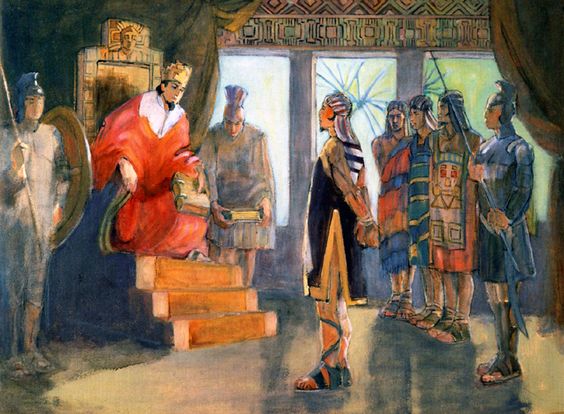To accompany your Come Follow Me study for May 6-12
In addition to reading the indicated chapters from Mosiah 7-10, you may enjoy looking at the corresponding commentary in the Book of Mormon Institute Student Manual at:
You may also enjoy any or all of the following related videos:
If you would like a Kahoot game related to this material which you could use for personal study or use with your family or your class, click here: https://create.kahoot.it/share/mosiah-7-10/fa2d5061-d500-4d25-ad4b-176b8d75aed7 . To use it with a group, after clicking on this link, you will need to log into Kahoot, creating a free account if you have not done so previously, then click on the blue “Start” button. Some of the Kahoot questions may presuppose that the player has read through the suggested answers to the following Points to Ponder and at least has browsed the Institute student manual as well.
Points to Ponder in Mosiah 7-10
1. Even though Ammon came as a friend to Limhi and his people and provided their best chance of escaping from their Lamanite captors, Limhi threw Ammon in jail because
a. Ammon had helped scatter Limhi’s sheep.
b. Ammon had boldly called Limhi to repentance.
c. Limhi was jealous of Ammon’s popularity.
d. Limhi mistook Ammon for someone else.
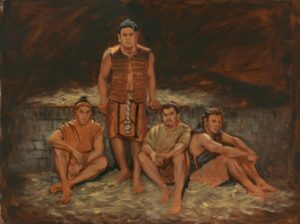
2. When we first read of Limhi, he is
a. In the Land of Nephi, but would rather be in Zarahemla.
b. In Zarahemla, but would rather be in Nephi.
c. In Bountiful, but would rather be in Helam.
d. In prison, but would rather be in power.
3. Why do you suppose in Mosiah 7:8 it says that Ammon and his brethren were “permitted, or rather commanded, that they should answer the questions “which king Limhi should ask them? Why didn’t Mormon just say “commanded” to start with and save the extra space on the gold plates?
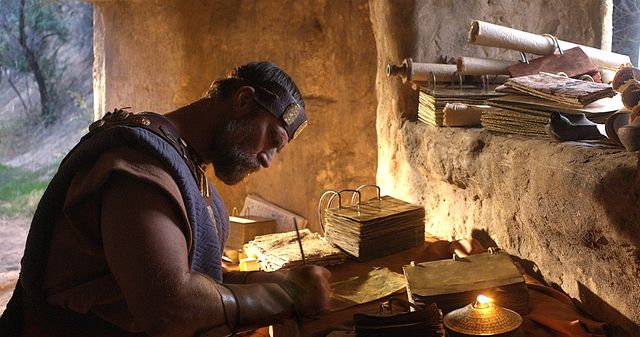
4. Why are Mormon’s extensive quotations of king Limhi significant? (E.g., Mosiah 7:8-15, 17-33; 8:5-21.)
5. Why does Limhi say “a seer is greater than a prophet”? What is the difference between the two terms? Which is Russell M. Nelson? Which can you be?
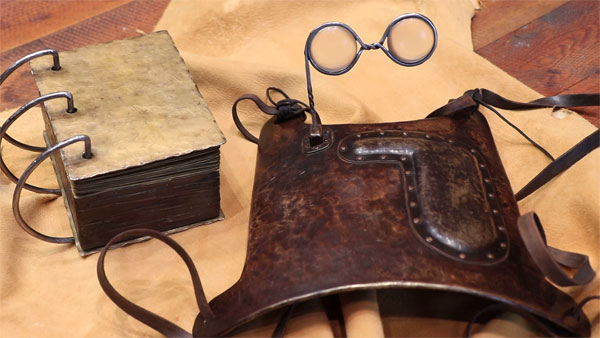
6. Now that the Book of Mormon has been translated by Joseph Smith, acting as a “seer,” what further use would the President of the Church have for the power to “look, and translate all records that are of ancient date” (Mosiah 8:13.)? Do we expect further scripture to come forth from the past?
7. What does Zeniff mean in saying he was over‑zealous? (9:3.) Can one be too enthusiastic in doing right? What might each of the following do if he were “over-zealous”?
a. A full-time missionary?
b. A ministering elder or sister?
c. A Sunday School teacher?
d. A family history consultant?
e. A parent of teenagers?
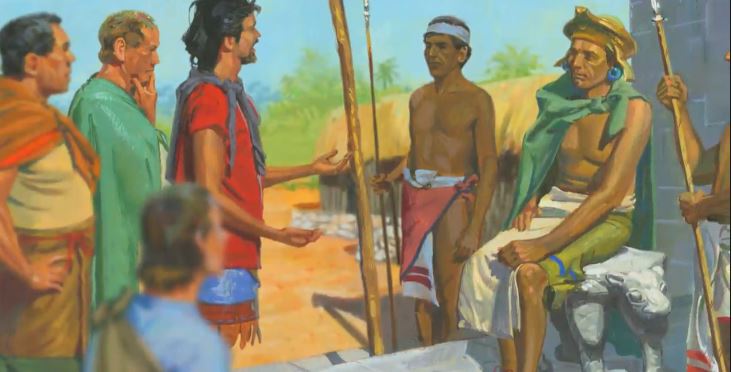
8. We are told in Mosiah 9:9 that “barley” was among the crops cultivated by the Nephites. But scholars tell us that “Barley was first grown in North America in 1492 by a colony founded by Columbus. Spaniards introduced barley into Mexico during the conquest, and from there it was introduced by missionaries into California.” (https://www.world-foodhistory.com/2014/03/barley-in-ancient-history.html) How can we respond?

9. Mosiah 9:16 tells us that Zeniff armed his people with a variety of weapons, including cimeters. This is an older spelling of what we know as scimitars, a weapon with a curved blade which, according to scholars, was unknown in ancient America. Whom are we to believe?
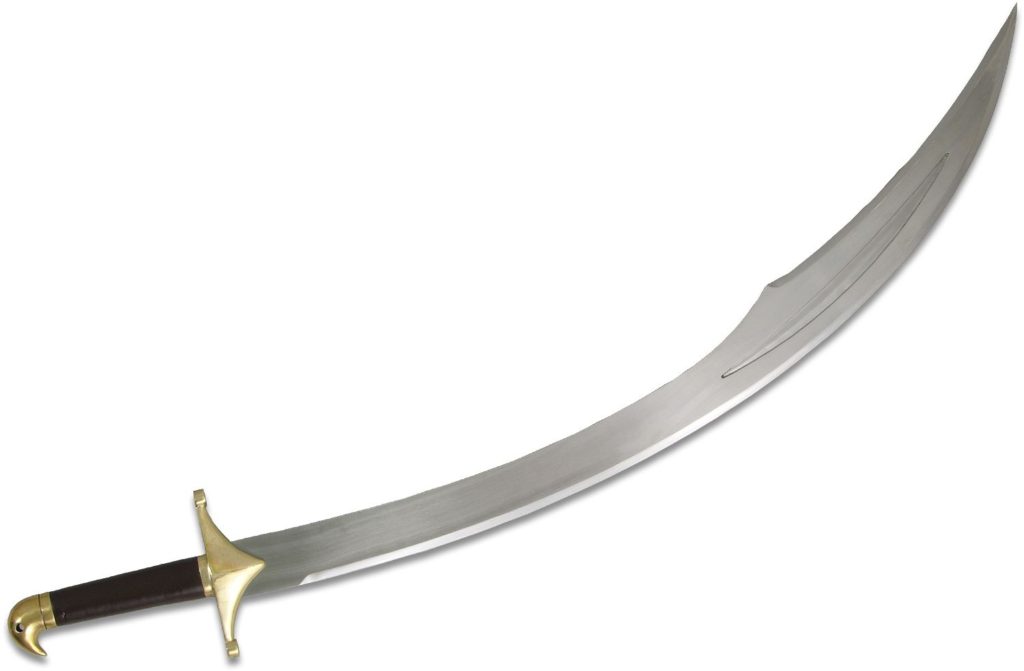
10. If the Nephites in 9:17‑19 went into battle “in the strength of the Lord,” why were 279 of them killed? What larger lesson can we learn from this?
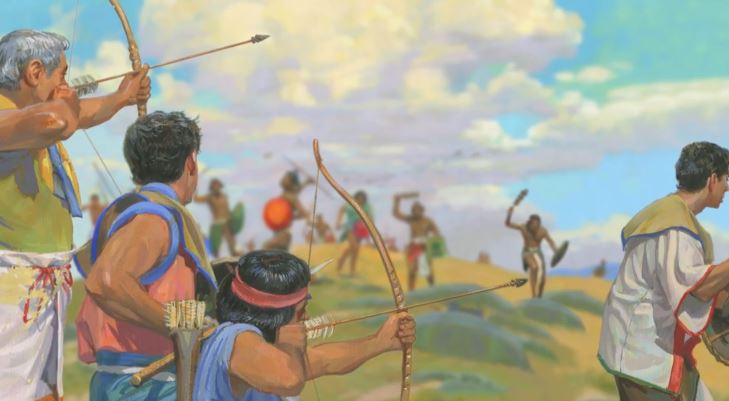
11. What other principles worth noting can you find in these four largely historical chapters?
Possible Answers to Points to Ponder in Mosiah 7-10
1. Even though Ammon came as a friend to Limhi and his people and provided their best chance of escaping from their Lamanite captors, Limhi threw Ammon in jail because
a. Ammon had helped scatter Limhi’s sheep.
b. Ammon had boldly called Limhi to repentance.
c. Limhi was jealous of Ammon’s popularity.
d. Limhi mistook Ammon for someone else (one of the former priests of king Noah, whose kidnapping of Lamanite daughters had brought such disastrous consequences to the Nephite colony.)
2. When we first read of Limhi, he is
a. In the Land of Nephi, but would rather be in Zarahemla.
b. In Zarahemla, but would rather be in Nephi.
c. In Bountiful, but would rather be in Helam.
d. In prison, but would rather be in power.
3. Why do you suppose in Mosiah 7:8 it says that Ammon and his brethren were “permitted, or rather commanded, that they should answer the questions “which king Limhi should ask them? Why didn’t Mormon just say “commanded” to start with and save the extra space on the gold plates?
This is one example among many which support the claim that the Book of Mormon was written on metallic plates. Unfortunately, the plates had no “delete key,” so corrections could be made only by adding explanatory text. For further discussion of this subject, please see my article at https://latterdaysaintandhappy.com/how-do-you-correct-typos-gold-plates/.
4. Why are Mormon’s extensive quotations of king Limhi significant? (E.g., Mosiah 7:8-15, 17-33; 8:5-21.)
Go to https://archive.bookofmormoncentral.org/content/knowhy-85-why-are-mormon%E2%80%99s-extensive-quotations-limhi-significant-mosiah-79 for some interesting insights from the folks at Book of Mormon Central.
5. Why does Limhi say “a seer is greater than a prophet”? What is the difference between the two terms? Which is Russell M. Nelson? Which can you be?
The Bible Dictionary says, “In a general sense a prophet is anyone who has a testimony of Jesus Christ by the Holy Ghost.” As Revelation 19:10 states, “The testimony of Jesus is the spirit of prophecy.” So, anyone who knows through revelation that the God lives and that the gospel is true and shares that testimony with others is in that sense acting as a “prophet.” Moses expressed the longing, “Would God that all the Lord’s people were prophets, and that the Lord would put his spirit upon them!” (Numbers 11:29.) The President of the Church is often referred to as “the Prophet,” and only he has the right to announce new revelation for the entire Church, but each member may receive it to direct him in his own life and within the sphere of his own stewardship.
The term “seer” literally means “one who sees.” Ammon explained that a seer can “see” or “know of things which are past, and also of things which are to come.” (Mosiah 8:17.) He also indicated that one who looks into “the interpreters” or “Urim and Thummim” with divine insight would be called a “seer.” (Mosiah 8:13.) Church members sustain all the members of the First Presidency and Quorum of the Twelve Apostles as “prophets, seers, and revelators.” However, all but the President of the Church hold this power only latently, pending their possibly later ascending to the position of President through seniority. Should the Lord have new documents requiring translation or new revelation to announce, it would come through the President of the Church, unless he should delegate that responsibility to one of his counselors or a member of the Quorum of the Twelve. Though every member should aspire to have the gift of prophecy, as Paul taught (1 Corinthians 14:1), to be able to know for himself that the gospel is true and to be able to share that testimony with others, it is not expected that each member also be a “seer” with the same ability as the First Presidency and Quorum of the Twelve to see into both the past and the future and to translate otherwise unreadable documents.
6. Now that the Book of Mormon has been translated by Joseph Smith, acting as a “seer,” what further use would the President of the Church have for the power to “look, and translate all records that are of ancient date”? Do we expect further scripture to come forth from the past?
Yes, indeed! The sealed part of the Book of Mormon plates (Ether 4:4-7) as well as the records of the lost tribes of Israel (2 Nephi 29:13) are yet to come forth. When they do, they will certainly require the service of the then-serving prophet, seer, and revelator.
7. What does Zeniff mean in saying he was over‑zealous? (9:3.) Can one be too enthusiastic in doing right? What might each of the following do if he were “over-zealous”?
a. a full-time missionary?
b. a ministering elder or sister?
c. a Sunday School teacher?
d. a family history consultant?
e. a parent of teenagers?
“Overzealous” suggests an unbalanced fanaticism that leads to unwise excesses. Zeniff was so eager to repossess the land of his ancestors that he became so gullible that the Lamanite king easily deceived him. Perhaps one cannot be too “enthusiastic” in doing right, but one can be too zealous and unwise. For example:
a. A full-time missionary might become so extreme that he stood up on buses or on a table in a public park and bore his testimony, convincing everyone within earshot that he was “weird” and doing more to alienate potential investigators than to attract them. Or he might be so pushy with members in insisting on their providing referrals that he offended them rather than encouraged them.
b. A ministering elder or sister might become too preachy with less active members before gaining their friendship and confidence.
c. A Sunday School teacher might become so excited about the lesson material that he wanted to spend too much time lecturing and telling class members what they ought to be doing.
d. A family history consultant could spend so much time doing family history research, helping others do their research, and attending the temple that he lost a sense of balance and neglected his own family and other equally important Church activities.
e. Parents of teenagers could be so desirous that their kids turn out right that they come across as more domineering than loving, doing more to push their kids away from the Church than to attract them to it.
8. We are told in Mosiah 9:9 that “barley” was among the crops cultivated by the Nephites. But scholars tell us that “Barley was first grown in North America in 1492 by a colony founded by Columbus. Spaniards introduced barley into Mexico during the conquest, and from there it was introduced by missionaries into California.” (https://www.world-foodhistory.com/2014/03/barley-in-ancient-history.html) How can we respond?
See the article at https://archive.bookofmormoncentral.org/content/knowhy-87-how-can-barley-book-mormon-feed-faith-mosiah-99
9. Mosiah 9:16 tells us that Zeniff armed his people with a variety of weapons, including cimeters. This is an older spelling of what we know as scimitars, a weapon with a curved blade which, according to scholars, was unknown in ancient America. Whom are we to believe?
If one gets a spiritual testimony of the Book of Mormon through study and prayer, he will not be fazed by contrary “evidence.” Happily, the existence of the once undiscovered ancient American “cimeter” has now been confirmed. See https://archive.bookofmormoncentral.org/content/knowhy-472-why-does-book-mormon-mention-cimeters-mosiah-916
10. If the Nephites in 9:17‑19 went into battle “in the strength of the Lord,” why were 279 of them killed? What larger lesson can we learn from this?
The promise of protection is a general one. A righteous nation will survive, and individual combatants in such a nation stand a much better chance of surviving than those on the other side. And in individual cases, there are many stories of divine protection in battle. But it is just as true that righteous individuals (not nations) will perish during war. For a further discussion of the topic, see my article at http://latterdaysaintandhappy.com/keep-gods-commandments-prosper-why-are-so-many-good-people-poor/.
11. What other principles worth noting can you find in these four largely historical chapters?
Your choice. Possibilities could include:
- Mosiah 7:17: The temple should be central in our lives, as it was with Limhi and his people.
- Mosiah 7:19-20, 33: Just as God miraculously freed the Israelites in Moses’ day, provided manna for them, and parted the Red Sea for them, so can He deliver us and perform needed miracles in our lives if we will put our trust in Him and “serve Him with all diligence of mind.”
- Mosiah 7:25, 29-30: Transgression can cause “great evil” to come upon us. God will not help us in such circumstances but will hedge up our way.
- Mosiah 8:5: Even though Limhi’s people had been less than stellar in their obedience to the Lord, they recognized the importance of keeping an imperishable record, evidently on metal plates. We should be similarly committed to keeping our own personal and family history of significant events. For further thoughts on this subject, see my article at: https://latterdaysaintandhappy.com/most-exciting-scripture-that-which-you-write/
- Mosiah 8:20: The Lord is very patient with us and is not eager to punish us for our first mistake.
- Mosiah 9:1: We should look for the good in those who are different from us.
- Mosiah 10:1: The Lord expects us to do more than live the gospel and pray if we want His protection. We (as a nation) must also do our part to prepare to fight, if necessary.
- Mosiah 10:12-17: The things we teach our children, by word or example, can have consequences which will last for generations.
